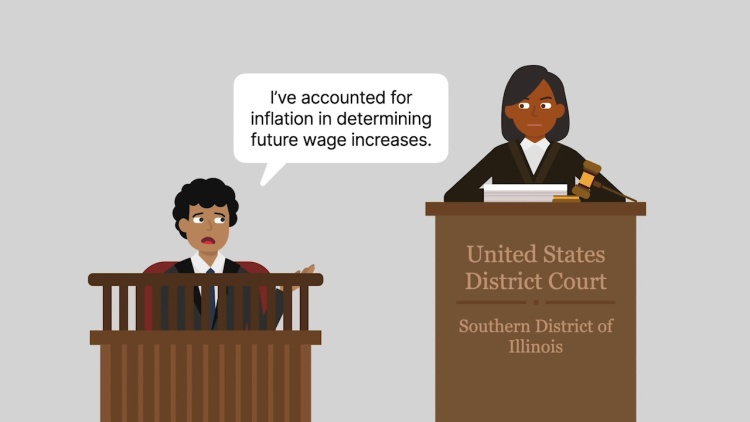O'Shea v. Riverway Towing Co.
United States Court of Appeals for the Seventh Circuit
677 F.2d 1194 (1982)
- Written by Megan Petersen, JD
Facts
Margaret O’Shea (plaintiff) was a cook on a tugboat on the Mississippi River. One day as she was coming off duty, she caught a harbor boat operated by Riverway Towing Co. (Riverway) (defendant) to take her to shore. As she stepped off the Riverway boat, O’Shea fell and injured herself. O’Shea brought suit against Riverway for damages. The district court found O’Shea free from contributory negligence and assessed damages in excess of $150,000. Part of this award included damages for lost future wages. The trial court calculated damages based on the fact that O’Shea’s job paid her $40 per day, with a schedule of working thirty consecutive days and having thirty days off. This amounted to $7,200 per year, although O’Shea had never made that much in one year. She testified that when the accident occurred, she was about to take a job making $60 per day ($10,800 per year), and was planning to stay at that job until at least age seventy. O’Shea presented an economist as an expert who calculated her lost future wages based on a percentage increase per year, discounted to present value. This yielded a range of possible future wages between $50,000 and $114,000 per year. The trial judge awarded an amount of $86,033 for lost future wages based on a point in the middle of this range. Riverway appealed on the trial court’s finding of no contributory negligence and the calculation of lost future wages. Riverway argued that although O’Shea might not be able to continue working as a cook on a boat due to her injuries, she could likely get a job doing something else and thus earn some wages.
Rule of Law
Issue
Holding and Reasoning (Posner, J.)
What to do next…
Here's why 907,000 law students have relied on our case briefs:
- Written by law professors and practitioners, not other law students. 47,100 briefs, keyed to 996 casebooks. Top-notch customer support.
- The right amount of information, includes the facts, issues, rule of law, holding and reasoning, and any concurrences and dissents.
- Access in your classes, works on your mobile and tablet. Massive library of related video lessons and high quality multiple-choice questions.
- Easy to use, uniform format for every case brief. Written in plain English, not in legalese. Our briefs summarize and simplify; they don’t just repeat the court’s language.





